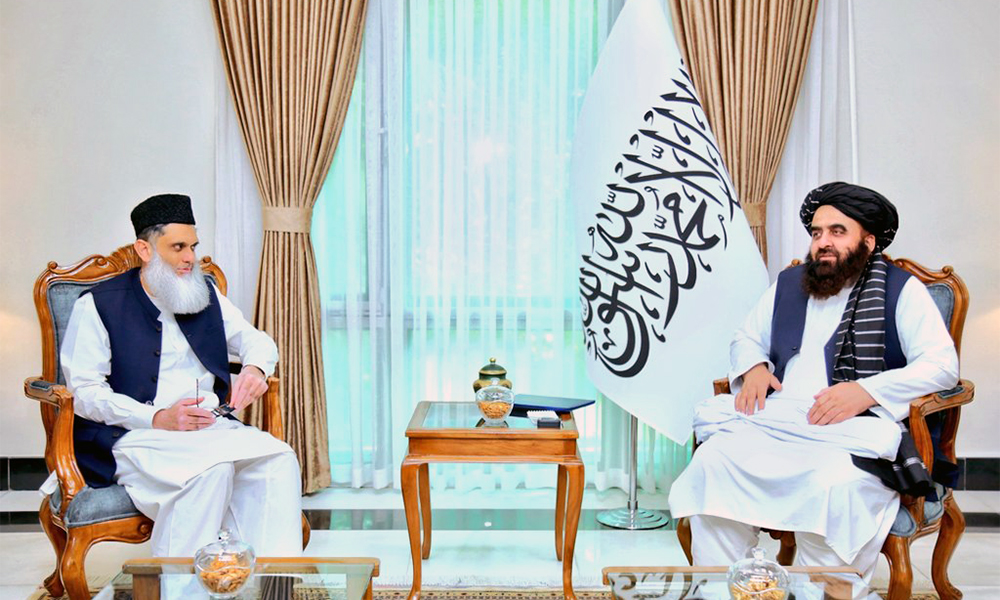
by Shaimin Raja 10 June 2023
The Ministry of Foreign Affairs of Islamic Emirate of Afghanistan has announced that a joint committee will be established between the consular section of the ministry and the Pakistani embassy in Kabul in order to facilitate the movement of nationals between the two countries. Setting up of a joint committee for cross-border movement by IEA is a welcoming development and shows positive trajectory of ties between the two countries. Pakistan shares 2670 km long border and five operational crossing points with Afghanistan despite human resource limitations. Such agreements intended on improved arrangements would not only improve bilateral ties but also generate mutual prospects of prosperity and development. This effort is reflective of IEA’s desire for continuous and practical engagement with Pakistan to ensure lasting peace between the two countries, which is encouraging. Recently, an additional trade route at Spin Boldak-Chaman border has been opened for easy trade by businesses community of both countries. IEA’s joint arrangement for cross-border movement is a recognition of Pakistan’s struggle for operative border management.
Earlier in March Pakistani and Afghan authorities reached a consensus to collaborate in enhancing and streamlining cross-border trade and pedestrian movement. This agreement was made during a meeting of the Pak-Afghan Border Management Committee held at the Afghan customs offices in the Gumrak area. The Pakistani delegation, composed of Lt-Colonel Mujtaba, retired Colonel Sattar from the National Logistic Cell, ADC Rizwan, and officials from the police, Anti-Narcotics Force, and health department, engaged with their Afghan counterparts, including director-general (customs) Abdul Hadi, deputy director (import and export) Qazi Hamid, and border security and health officials. During the meeting, participants addressed the reasons behind the unilateral closure of the Torkham border by Afghan border forces for a week in February. The Afghan side accused Pakistani forces of mistreating Afghan patients and denying them and their companions entry into their country without a visa. The bilateral border management committee discussed these concerns.
Sources familiar with the meeting revealed that Afghan authorities reiterated their grievances regarding Pakistan’s refusal to permit patients and their companions from Afghanistan to enter its territory without a visa in emergency situations, as well as Afghan transport conductors with trade goods. Afghan officials also requested entry permissions for Afghan vehicles equivalent to Pakistani ones crossing into Afghanistan, as well as for stranded citizens holding Afghan cards or Prove of Registration (PoR) cards. The sources further stated that the Afghan authorities urged their Pakistani counterparts not to seize PoRs and Afghan cards, but rather punch them, as many returning Afghans who had resided in Pakistan for decades lacked other identification cards or legal travel documents. The Afghan side also emphasized the importance of allowing individuals from their country who do not possess PoRs or Afghan cards and are returning to Pakistan under the UNHCR voluntary repatriation program to be permitted to travel with their family members. While consensus was not reached on granting entry to attendants of patients and Afghan transport conductors without a visa, the sources claimed that Pakistani officials assured their Afghan counterparts that they would raise these issues with higher authorities in Islamabad for a decision.
Both sides agreed to make concerted efforts to effectively curb child porters from engaging in clandestine activities such as smuggling sugar and oranges into Afghanistan and smuggling goods into Pakistan. The involvement of child porters in cross-border smuggling was identified as a hindrance to the smooth flow of vehicular and pedestrian movement on both sides of the border. Additionally, the Afghan side expressed the need for an increase in the number of patients from their country who can travel to Pakistan for treatment, as a significant number of citizens are eagerly awaiting their departure due to the recent closure of the Torkham border on two occasions in the past three weeks. The Pakistani side assured the Afghan delegation of their full cooperation on this matter.
